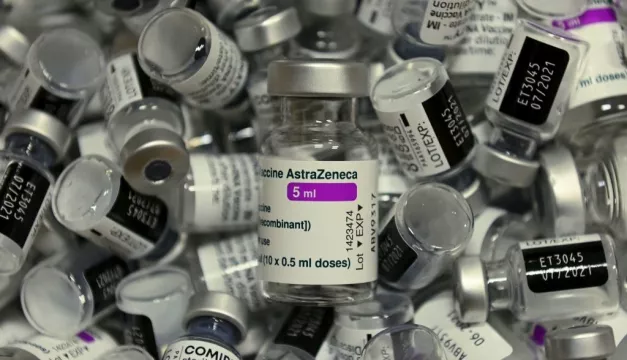Two doses of the Pfizer and AstraZeneca Covid-19 vaccines induce lower levels of antibodies against Omicron, a new study suggests.
Researchers said the findings indicate the new variant has the potential to drive a further wave of infections, including among those already vaccinated.
However, the team from the University of Oxford said there is currently no evidence of increased potential to cause severe disease, hospital admission or deaths in vaccinated populations.
Antibodies are produced by the immune system in response to antigens, in a bid to fight off disease.
The findings came as England's health minister Sajid Javid said it would be “completely unfair” to suggest the AstraZeneca jab is not as good as once thought.
Mr Javid was asked on Sky News: “Is it because AstraZeneca wasn’t as good as we initially thought and actually the booster, either Pfizer or Moderna, is what’s helping?”
He replied: “No, I think that would be completely unfair. AstraZeneca has played a phenomenal role in protecting our country.”
He added: “The difference now is… this variant, and different types of vaccines will react in different ways.
“But whether it’s AstraZeneca you had for your first two doses or it’s Pfizer or Moderna, you still need a booster shot to be protected against this new variant.”
Data published by the UK Health Security Agency (UKHSA) on Friday indicated reduced effectiveness of two doses of these vaccines against symptomatic disease due to the Omicron variant compared with Delta.
But it also found the effectiveness was improved by a third dose of vaccine.

UKHSA reported that an mRNA booster jab – which Pfizer and Moderna both are – resulted in an increase in the induction of antibodies irrespective of primary vaccine type.
This was true regardless of which vaccine was used for the variants of concern and variants under investigation.
However, the agency said the duration of restored protection after mRNA boosting is not currently known.







